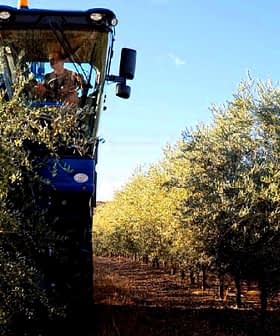Spanish Olive Oil Exports Soar During Weak Harvest
Spain's exports have increased by fifty-three percent over last year, capitalizing on high prices and its position as the market leader.
Spain is currently experiencing a formidable olive oil commercialization campaign as exports have increased a whopping fifty-three percent compared with the levels of last year.
The Olive and Olive Oil Sectorial Table, during a meeting in the Department of Agriculture and Fishing, has announced that the commercialization campaign that started on October 31 has been a tremendous success thus far.
See Also:Complete Coverage of the 2016 Olive Harvest
In October, Spain produced 9,000 tons of olive oil despite the fact that the harvest had to be done relatively late because of the fruit’s late maturation. 72,000 tons of Spanish olive oil have been exported, and that only accounts for the month of November.
The news of flourishing Spanish exports comes during tough times for the olive oil industry. Indeed, the global production of olive oil has seen a significant drop in 2016. The International Olive Council first forecasted that worldwide yield would decrease by six percent but later revised it to fourteen percent.
Many of the world’s largest olive oil producers are experienced steep challenges.
In France, drought has severely impacted the harvest. In Italy, pests and harsh weather conditions have taken a toll on the olive trees.
In Spain, inaccurate yield forecasts have cast great anxiety over the olive oil sector, with local industry leaders fearing that the lower-than-expected production levels would not be enough to meet the ever-expanding demand.
Overall, European countries have had a tough year in terms of production results. And yet, Spanish olive oil exports are reaching stellar levels.
If we account for both domestic and international commercialization, Spain has thus far sold 105,800 tons of olive oil, an increase of thirty-five percent compared with last year’s campaign.
The reason as to why Spanish exportations are doing so well is that the global demand is still growing by the day. There might be less olive oil available, but the oil that did get produced is finding buyers very easily.
Prices are at high levels and consumers who privilege olive oil as an essential kitchen staple seem to be willing to pay more to get their hands on it.
Moreover, the world-renowned Spanish province of Jaén has been one of the few that did not get severely impacted by drops in production.
As a result, Jaén is having little to no trouble selling its golden liquid, at high prices. It is obvious that the success that Jaén managed to maintain in terms of production and exportation is contributing greatly to the country’s international success.








